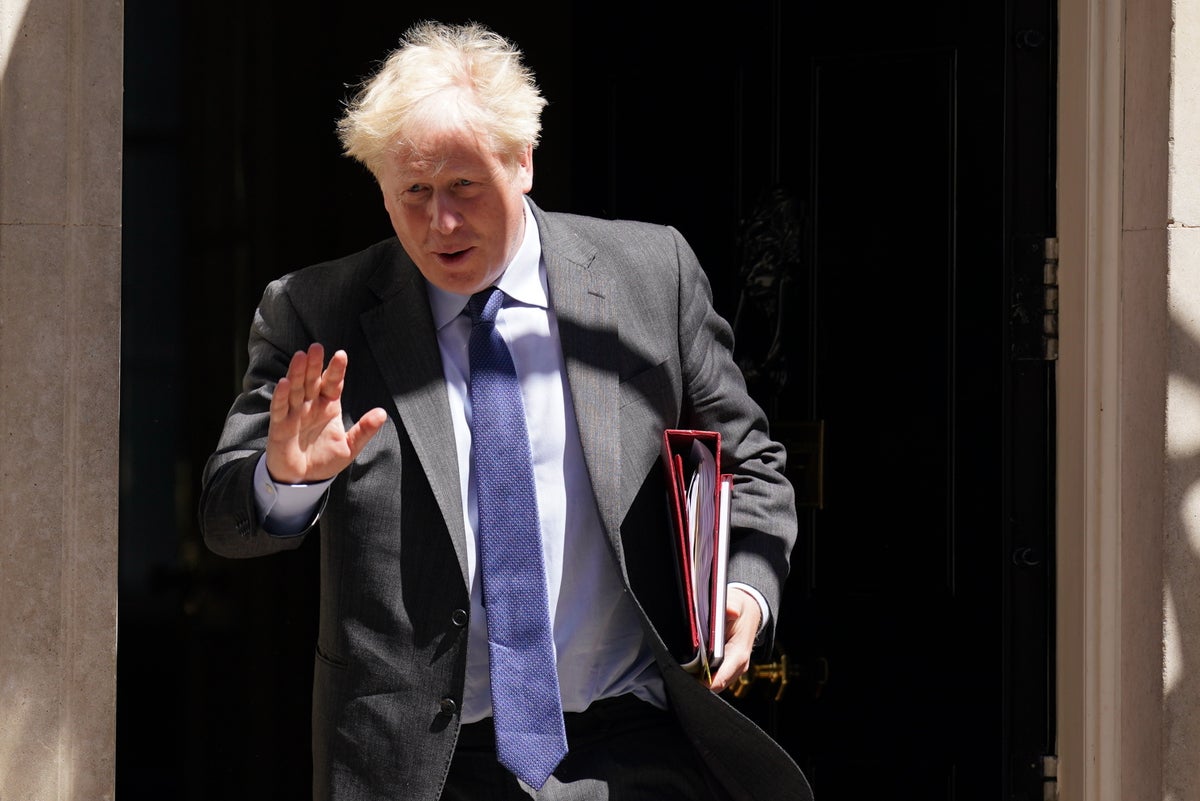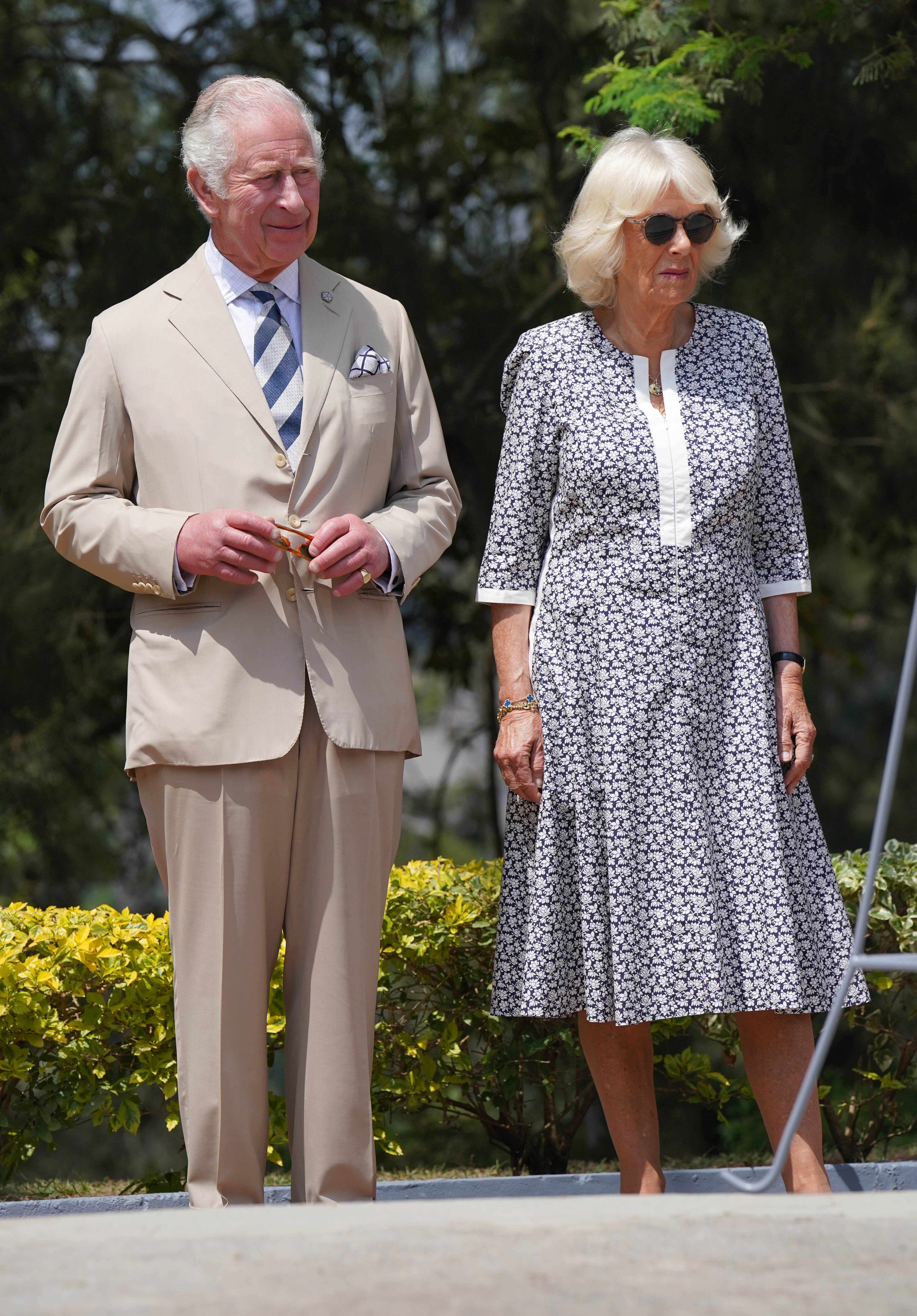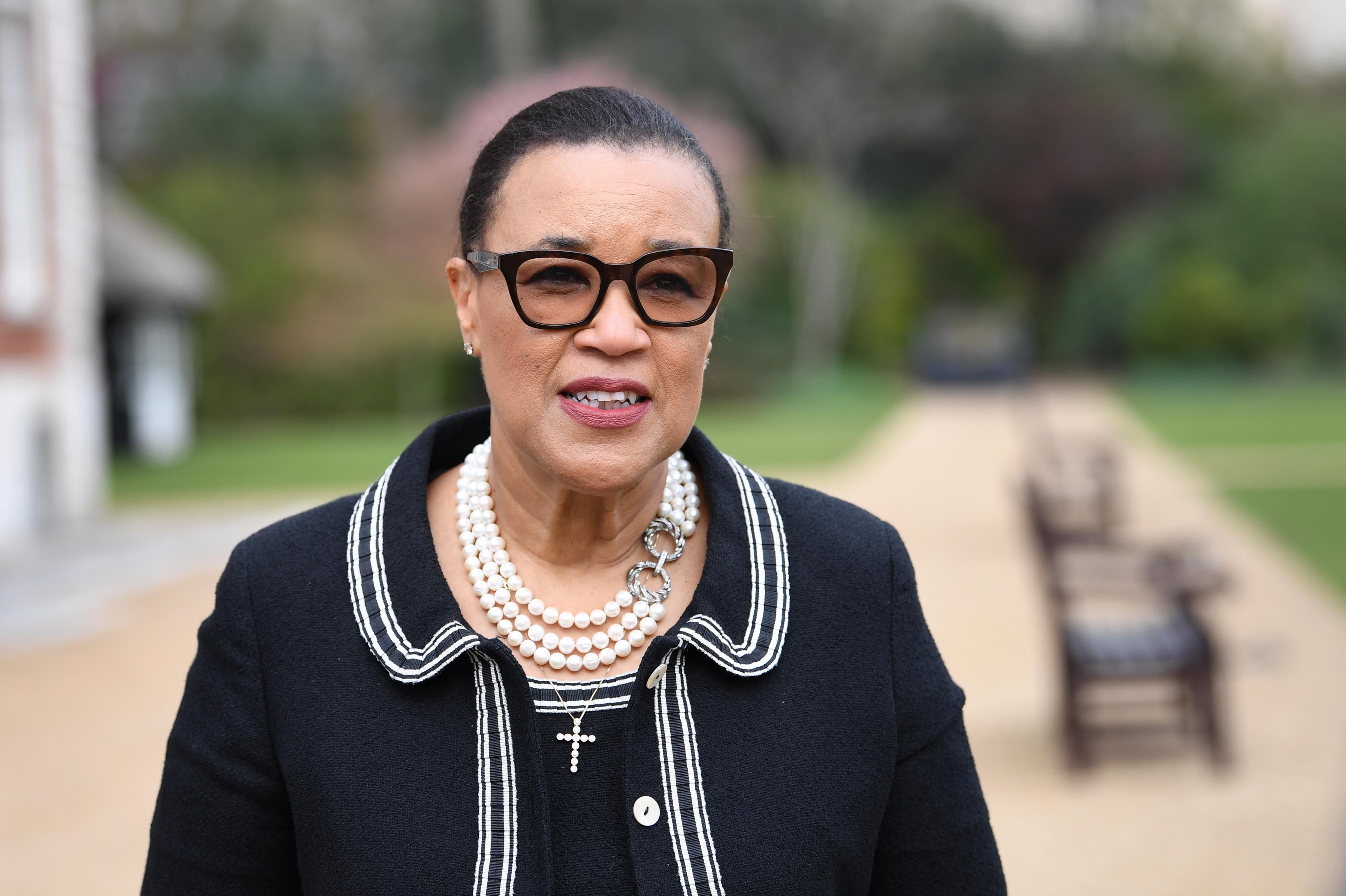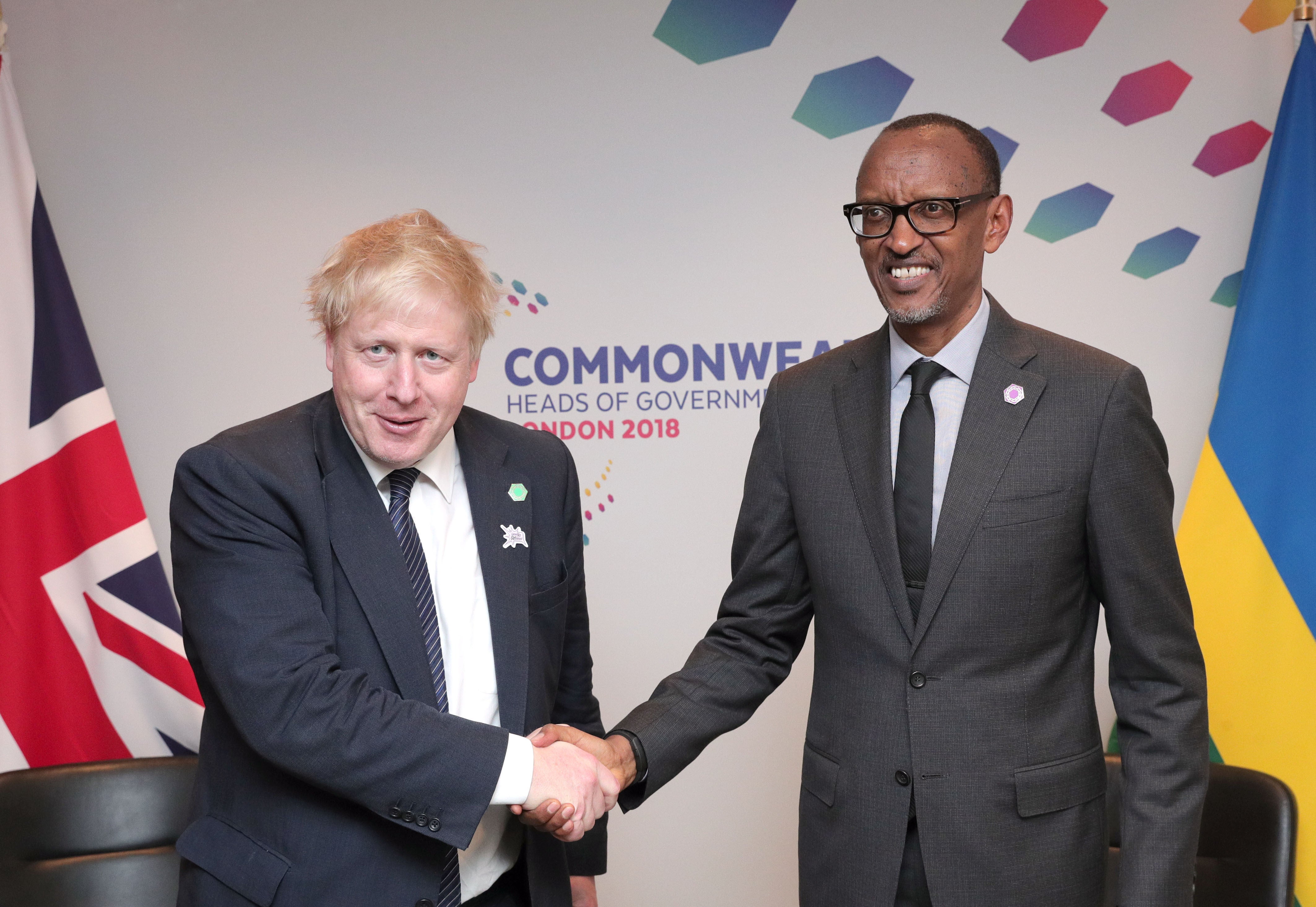
Boris Johnson is not planning on openly embracing his faltering flagship policy of sending asylum seekers to Rwanda on a one-way ticket during his visit to the East African nation.
The Prime Minister is opting not to visit the centres where migrants who have been forcibly removed from the UK would be housed if the scheme gets off the ground.
But it is going to be hard to ignore the policy with the Prince of Wales playing a key role at the summit of Commonwealth leaders that they are both attending.
Charles has reportedly criticised sending people 4,000 miles away after arriving in Britain through unauthorised journeys as “appalling” in private remarks.

Mr Johnson will also meet Rwandan president Paul Kagame, who may have questions over why the policy agreed under a £120 million deal with his nation is facing a legal backlash.
Here is a look at why the Prime Minister is in Rwanda, what he hopes to achieve there and the controversy surrounding the visit.
– What is Chogm?
The Commonwealth Heads of Government Meeting (Chogm) typically takes place every two years but is being hosted in Kigali after a hiatus forced by the coronavirus pandemic.
It is a chance for the leaders of the 54 Commonwealth nations, most of them former British colonies, to discuss their shared interests and make decisions about their future.
Therefore, it is somewhat of a coincidence that Mr Johnson is there while his asylum policy is in disarray thanks to a European Court of Human Rights decision, ahead of a full ruling in the UK.
Charles is in the capital of Kigali representing the Queen as the head of the Commonwealth.
– What is the PM hoping to achieve?
Mr Johnson wants to focus on tackling the food and energy insecurity caused by Russia’s invasion of Ukraine, with some Commonwealth nations feared to be particularly vulnerable.
Other key issues he wants to discuss are green economic growth, boosting girls’ education and increasing trade opportunities.
As well as the banquet and wider talks with Commonwealth leaders, Mr Johnson will hold one-on-one chats with key allies.
– What else will happen at the summit?

They may not be the most attention-grabbing, but there are key decisions to be made about the future of the political association.
The next secretary-general must be chosen, and Mr Johnson is hoping to oust the incumbent, Labour peer Baroness Scotland, who is running for a second term.
He instead backs Jamaican foreign minister Kamina Johnson Smith, and UK officials are confident he will get his way.
Shadow foreign secretary David Lammy was critical of Mr Johnson, the Commonwealth’s current chair-in-office, for undermining the position’s “neutrality and confidentiality”.
“No chair has ever done this in Commonwealth history. It’s unseemly and divisive,” the Labour MP said.
Mr Johnson said Ms Johnson Smith will have the “vast experience and support to unite our unique family of nations and seize the opportunities ahead”.
Officials are privately critical of Baroness Scotland, questioning whether she has provided effective or unified leadership.
Leaders are also expected to admit a new member state in the form of Togo, while it is possible Gabon could join too. The UK backs adding both to the Commonwealth family.
– What is the backdrop to the visit?
Mr Johnson hoped it would prevent the at-times deadly crossings of the English Channel made by thousands of people crammed into small boats each year.
He hoped the deal brokered with Kigali by Home Secretary Priti Patel would provide a disincentive for the journeys, while those who do make the unauthorised crossings could find asylum in Rwanda if approved.
The Government always knew it would attract legal challenges, and the challenges ultimately prevented the first flight from taking off last week.
Ministers had anticipated about 130 people to be on board but legal challenges reduced this to only around seven or fewer on the day of take-off.
Then the European Court of Human Rights granted an interim injunction barring the removal of an Iraqi asylum seeker until a decision on the legality of the Government’s policy is made in UK courts.
The Strasbourg-based court removed two others from the plane, while the Supreme Court granted injunctions preventing the immediate removal of three more.
Now the Government is trying to introduce a Bill of Rights that would confirm that measures such as the one issued over the Rwanda policy are not binding on UK courts.
Mr Johnson is likely to discuss the policy with Rwandan president Paul Kagame during a meeting in Kigali.
– Who is Paul Kagame?

Mr Kagame has been lauded by the international community for his role ending the 1994 genocide during the civil war.
Hutu extremists slaughtered about 800,000 Tutsis and moderate Hutus in just 100 days.
That came to an end when Mr Kagame’s Rwandan Patriotic Front (RPF) rebel group seized Kigali.
But his regime has since been accused of political repression, alleged assassinations and the imprisonment of critics.
Amnesty International UK’s refugee and migrants rights director, Steve Valdez-Symonds, accused the Government of “effectively supporting the continued repression of people in Rwanda under president Kagame’s regime” with the asylum policy.
“No country should be casting off its asylum responsibilities onto another, still less to a country such as Rwanda with a troubling human rights record alongside existing large-scale asylum responsibilities of its own,” he added.
“In recent years, Rwanda has been the scene of enforced disappearances, numerous allegations of torture, excessive use of force by the police, and serious violations of the right to a fair trial and the right to free expression.”
The Prime Minister’s official spokesman said he is expected to “raise human rights issues as he has done in the past”.
“We want Rwanda to uphold and champion the Commonwealth values, democracy, the rule of law and respect for human rights. And we want due process for all those in detention and fair and transparent application of the rule of law,” the official added.
Mr Kagame may himself want to question the Prime Minister on why no asylum flights have arrived in Kigali two months after the deal was signed.







